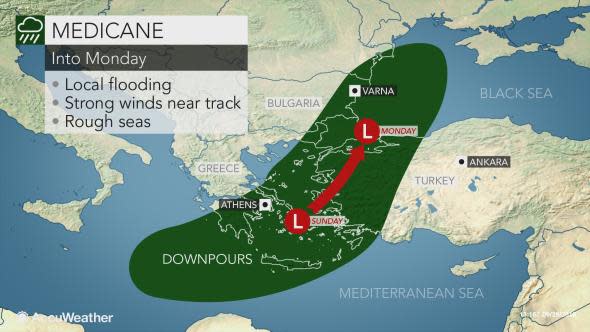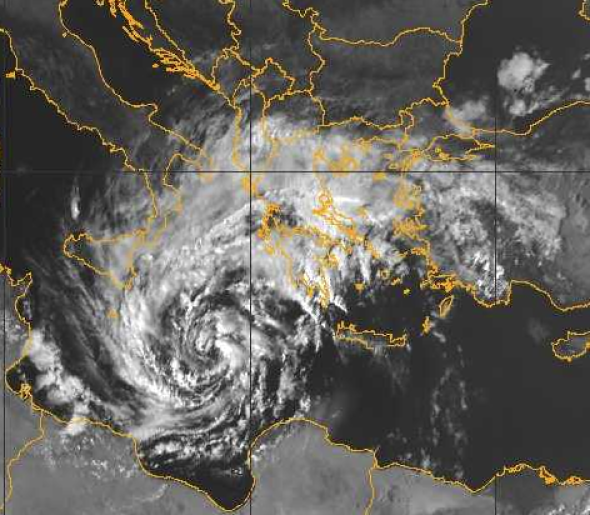What is a 'medicane'?
Greece and western Turkey are are experiencing heavy rain, strong winds and coastal flooding. The type of storm they are enduring, however, is probably one you have never heard of.
It's called a "medicane" and it is specific to the Mediterranean region.
It has nothing to do with medicine, although the name may lead one to assume so. However, it is a combination of the two words "Mediterranean" and "Hurricane." Although it is not official terminology, the name separates the regional differences that these storms have from tropical storms, cyclones or hurricanes.
"It is has been more in the last 20 years that we have seen these being reported," said AccuWeather Meteorologist Tyler Roys. "The last third of the year, essentially fall and earlier winter is when we see them."
A medicane is more of a tropical storm-like cyclone. They form when a non-tropical storm threat feeds off the warm waters of the Mediterranean, then the storm will begin to develop tropical-storm characteristics and strengthens.

The area that typically experiences a medicane is central Mediterranean countries like Greece, Italy or Turkey, for example.
So, what really makes a medicane different from other systems?
"They are short-lived, very rarely will we see them last a few day," said Roys. "Typically, they are not going to be big. They can quickly spin up within a 24-hour period and 24 hours later they could be gone."
Roys added that the quick storm can still bring on flash flooding and mudslides, especially in the mountainous regions in the Mediterranean. These areas do often experience winds due to terrain. However, the winds from a medicane could still cause damage.
Medicanes, however, do not typically progress into anything more severe.
"The odds of it developing to a major hurricane is extremely small," said Roys. "There is not a classified system with categories [for medicanes]. Very rarely they are producing anything over 120-130 mph, equivalent to a Category 3 or 4 hurricane."
RELATED:
'Medicane' wreaks havoc in Greece as torrential rainfall, angry seas and winds batter region
In case you missed it: Brewing 'medicane' thrashes Greece; India flooding kills dozens
Double waterspouts form off the coast of Greece
Although a medicane is not a hurricane, many times they try to form an eye that could resemble a hurricane's. They also spin like other tropical systems.
In November 2017, remnants of Tropical Storm Rina formed what would eventually develop into Medicane Numa that hit Greece. According to NPR, the medicane left damage primarily in Athens and the outskirts, killing at least 20 people.

"During last year's medicane, you had many factors that came into play," said Roys. "You had the remains of a tropical storm and it developed into a new storm system over the British Isles and moved toward the Adriatic Sea. As it moved south into the warmer waters, it started to have some tropical transformation."
There is no agency that tracks medicanes. However, Meteo France may put out a message when one is developing. There are never any official government warnings issued for medicanes because of their rarity. Many medicanes do not make landfall, with only a 60 percent chance of more than one medicane hitting the region each year.
"For it to make the news here, it would have to do something catastrophic," said Roys.
